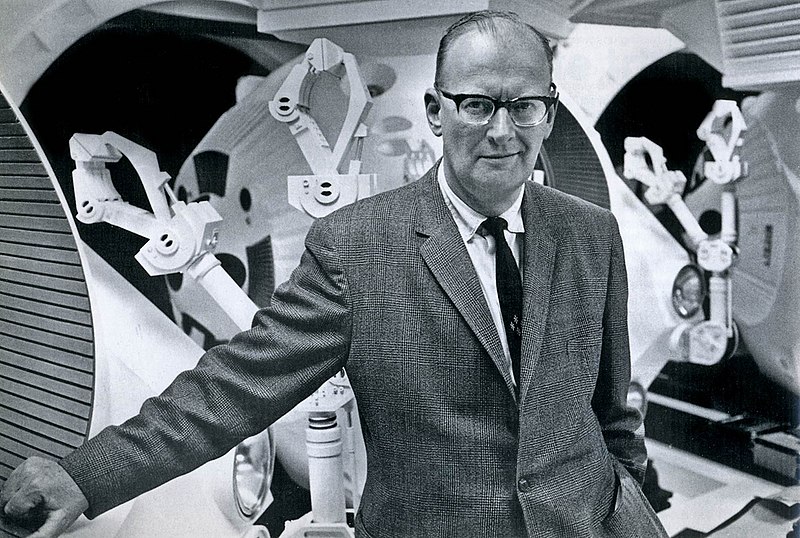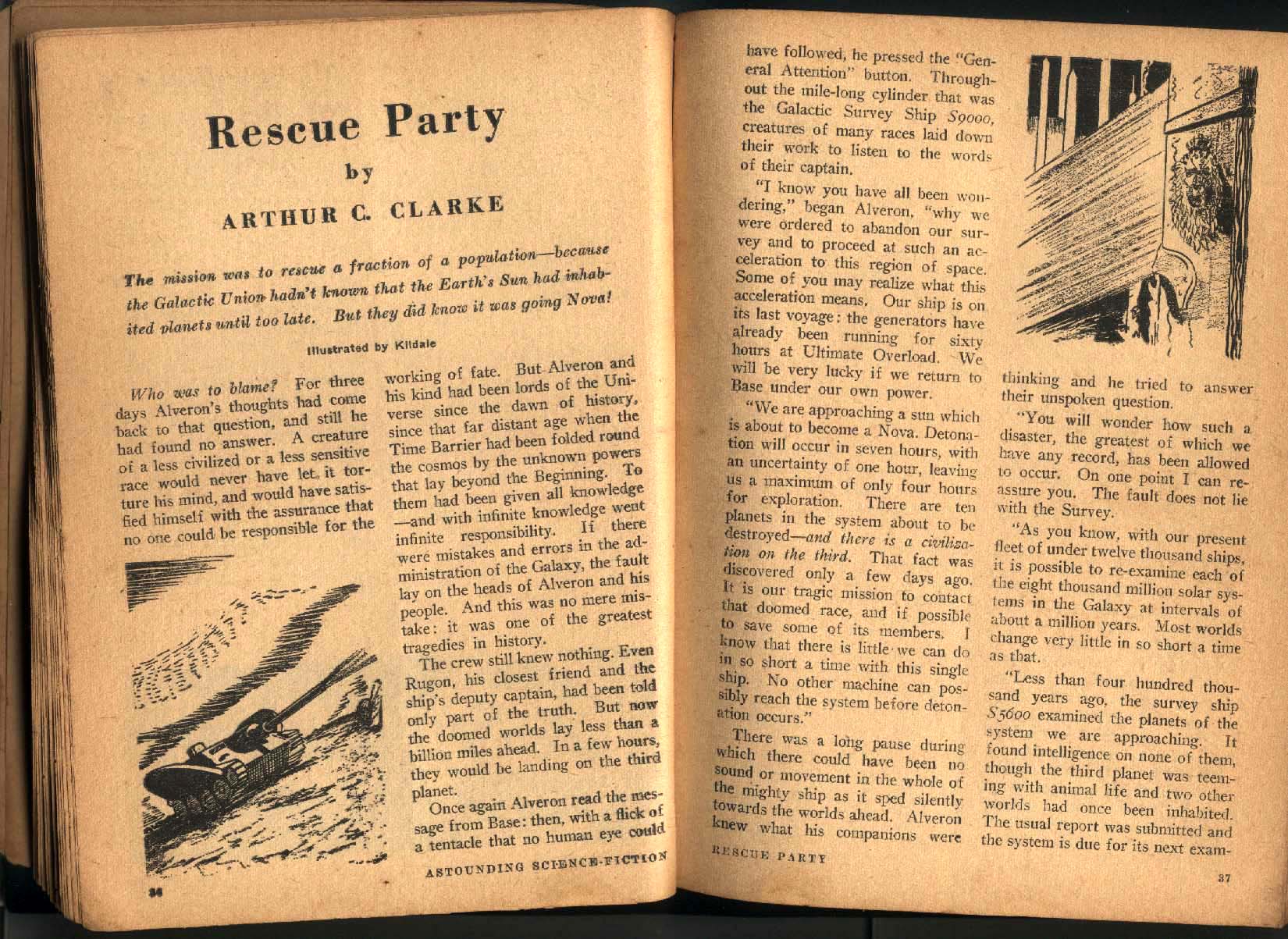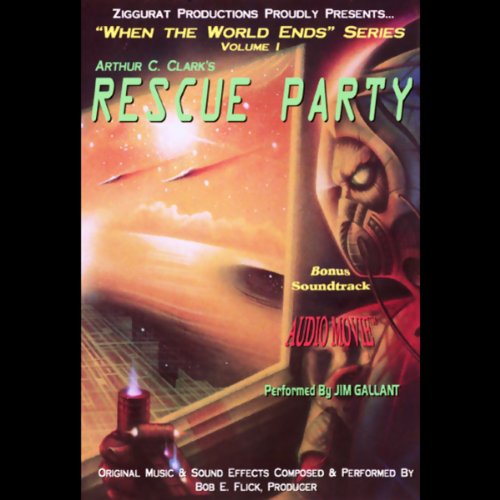Sir Arthur Charles Clarke was a British science fiction and science writer, futurist, explorer and tv host. He was born on 16th of December 1917 in England and passed on 19th of March 2008 in Sri Lanka aged 90 years.

He is known to the broader public for co-writing the screenplay for the 1968 Stanley Kubrick film classic 2001: A Space Odyssey, widely considered to be one of the most influential films of all time. An possibly the best sci-fi movie ever produced.
His science fiction writings earned him a number of awards and one of the founding figures of contemporary science fiction. For many years Clarke, Robert Heinlein and Isaac Asimov were known as the “Big Three” of science fiction. Arthur C. Clarke was also nicknamed the “Prophet of the Space Age”.
Resuce Party was first published in “Astounding Science Fiction” in May 1946. It was the first story Clarke sold and gives us a insight into the beginnings of this titan of science fiction. He is one of my all time favorite writers.
Story

The story begins with an alien ship visiting Earth only a few hours before the sun explodes and destroy the planet. The mission of the aliens is to save as many humans as possible. The galactic civilization does surveys of planets every one million years for new intelligent species, but the human race did not exist the last time the survey was done four hundred thousand years before. However, radio signals had been detected, indicating intelligent life had arisen on Earth.
When the aliens arrive on the blue planet they are surprised by the planet being empty of intelligent life, except for deserted cities and other remnants of the civilization.
We find out during the exploration of the cities by the aliens that it is unusual for civilizations to develop space travel so quickly after radio communication.
The aliens find a communication tower pointing into space. They follow the towers direction and find an enormous fleet of human ships, powered by rockets. The aliens, equipped with faster-than-light ships, are amazed that humans dared to cross interstellar space with rockets. Humans have taken the audacious tactic of using generational starships, in the hopes that their descendants will one day arrive at a new planet.

Ending
“I wonder what they’ll be like?” he mused. “Will they be nothing but wonderful engineers, with no art or philosophy? They’re going to have such a surprise when Orostron reaches them—I expect it will be rather a blow to their pride. It’s funny how all isolated races think they’re the only people in the Universe. But they should be grateful to us; we’re going to save them a good many hundred years of travel.”
Alveron glanced at the Milky Way, lying like a veil of silver mist across the vision screen. He waved toward it with a sweep of a tentacle that embraced the whole circle of the galaxy, from the Central Planets to the lonely suns of the Rim.
“You know,” he said to Rugon, “I feel rather afraid of these people. Suppose they don’t like our little Federation?” He waved once more toward the star-clouds that lay massed across the screen, glowing with the light of their countless suns. “Something tells me they’ll be very determined people,” he added. “We had better be polite to them. After all, we only outnumber them about a thousand million to one.” Rugon laughed at his captain’s little joke. Twenty years afterward, the remark didn’t seem funny.
Audio Book
There is a excellent narrated episode of “Escape Pod” about this magnificient short story of Arthur C. Clarke.
Escape Pod Ep400: Rescue Party
Reception and Foreword by Arthur C. Clarke
“Rescue Party,” written in March 1945, while I was still in the Royal Air Force, was the first story I sold to the legendary John W. Campbell, Jr., editor of Astounding Science Fiction.
I don’t believe I’ve reread it since its original appearance, and I refuse to do so now — for fear of discovering how little I have improved in almost four decades. Those who claim that it’s their favorite story get a cooler and cooler reception over the passing years.